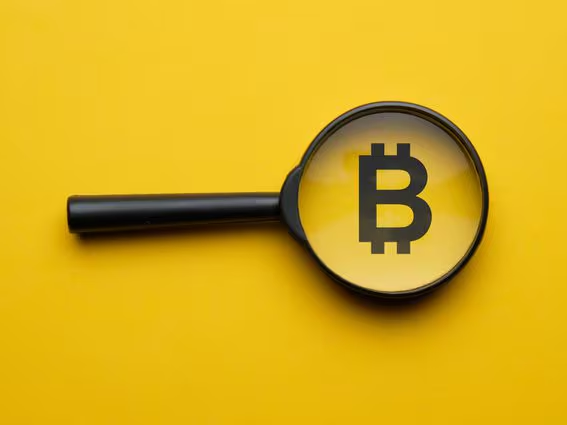
With the increasing demand for Bitcoin, the network often faces congestion, leading to delayed transactions. If you’ve ever experienced this, you understand the frustration of waiting for confirmation. While delays are common on the blockchain, they can be anxiety-inducing, especially when you’re unsure what’s happening. Here’s a deep dive into why your Bitcoin transaction might remain unconfirmed and what you can do to resolve it.
Key Takeaways
-
Monitor network traffic: Use blockchain explorers to gauge the current traffic on the Bitcoin network.
-
Pay a competitive fee: Miners prioritize transactions based on fees, so paying more can expedite the process.
-
Keep your wallet updated: Ensure you’re using a wallet that supports modern protocols like Segwit to speed up transactions.
-
Leverage advanced techniques: Methods like RBF, CPFP, or Double-Spend can help resolve stuck transactions.
What is a Bitcoin Transaction? An Overview
Every Bitcoin transaction begins when someone sends BTC to another party. Miners then confirm these transactions by picking them up from a pool of unconfirmed transactions (mempool) and adding them to a block. This process involves solving a mathematical puzzle called Proof-of-Work (PoW).
Once your transaction is placed in a block and confirmed by the network, it becomes a part of the blockchain. The more blocks that follow, the more secure the transaction is. However, the time taken to confirm transactions can vary due to several factors, with typical confirmation times ranging from 10 minutes to a few hours.
Why Your Bitcoin Transaction Remains Unconfirmed
Bitcoin transactions usually fall into two categories:
- Processing Transactions: These transactions are stuck in the process due to various factors but will eventually be confirmed.
- Failed or Incomplete Transactions: These transactions fail due to technical issues or incorrect details.
Let’s break down each scenario.
Processing Transactions
These unconfirmed transactions are still in the pipeline but remain stuck due to the following reasons:
1. High Network Traffic
When there are too many transactions on the Bitcoin network, it can become congested. This results in a backup of unconfirmed transactions. You can monitor this using blockchain explorers like Blockchain.com to view the number of pending transactions. While Bitcoin typically processes transactions in around 10 minutes, high traffic can significantly increase this wait time.
2. Low Transaction Fee
Miners prioritize transactions based on fees. If your transaction has a low fee, it might be stuck in the mempool for longer as miners pick higher-paying transactions first. To speed up confirmations, it’s advisable to pay a competitive fee.
3. Older Protocols
Some older Bitcoin wallets or networks may use outdated architecture (e.g., classic 1 MB block size) without implementing Segregated Witness (Segwit). Segwit helps optimize and speed up Bitcoin transactions. To check if your transaction uses Segwit, ensure it includes a “witness” and that the fifth byte (input count) shows “0x00.”
Failed or Incomplete Transactions
In some cases, transactions fail due to the following issues:
1. Incorrect Transaction Details
Sending Bitcoin to the wrong address or wallet can result in an unconfirmed transaction. It’s crucial to double-check all details before hitting “send,” as Bitcoin transactions are often irreversible, making it challenging to recover lost funds.
2. Internet Failure
Poor or faulty internet connections can prevent your Bitcoin transaction from being broadcasted to the network. If your connection is fine, check if a firewall might be blocking your Bitcoin application.
3. Rejected Transaction
Miners may reject your transaction if the fee is too low. Rejected transactions tend to stay unconfirmed for longer on a congested network.
4. Wallet Issues
Even if miners confirm your transaction, it might remain unconfirmed if the receiver’s wallet is unsynchronized or inactive. Always ensure that the receiver’s wallet is functioning correctly.
What To Do If Your Bitcoin Transaction is Unconfirmed
1. Use the Replace-by-Fee (RBF) Protocol
RBF allows you to resend a transaction with a higher fee, ensuring it gets picked up by miners faster. For this to work, your wallet must support RBF, and you should have checked the RBF option before sending the original transaction.
2. Try the Double-Spend Method
This method involves resending the same amount but with a higher fee to attract miners’ attention. Many wallets have safeguards to prevent double-spending, so you may need to use a different wallet for this method.
3. Child Pays for Parent (CPFP)
This technique creates a new transaction (child) with higher fees using funds from the original unconfirmed transaction (parent). Miners will prioritize confirming the parent transaction to access the higher-fee child transaction.
Frequently Asked Questions (FAQs)
Can I Speed Up My Bitcoin Transaction?
Yes, you can increase your transaction fee or use Bitcoin transaction accelerators to get miners to prioritize your transaction.
Can I Cancel My Bitcoin Transaction?
Yes, you can cancel unconfirmed Bitcoin transactions using the Replace-by-Fee (RBF) or Double-Spend method.
How Are Bitcoin Transaction Fees Determined?
Transaction fees are based on the network’s congestion and the data volume of the transaction.
Conclusion
The Bitcoin network is prone to transaction delays, but understanding the factors behind them can ease your concerns. Congestion, low fees, or technical failures can all lead to unconfirmed transactions. By increasing your fees, leveraging advanced protocols, or simply updating your wallet, you can minimize your waiting time.
You will be able to conduct smoother Bitcoin transactions in the future if you master these techniques!

Leave a Reply